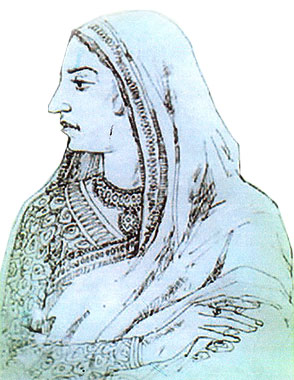|
Khalid Mahmood (civil Servant)
Khalid Mahmood Gondal is a Pakistani civil servant and the former chairman of the Pakistan Cricket Board (PCB) between 1998 and 1999. He played a significant role in shaping Pakistan cricket during his tenure and oversaw various aspects of the sport's administration and development. He is the 1967 batch of Central Superior Services. He has also served as the provincial ombudsman of the Punjab, Pakistan. One notable aspect of Khalid Mahmood's tenure was his stance on addressing corruption in cricket. He urged the PCB to not only make public the names of bookies involved in corrupt practices but also to send their cases to the Federal Investigation Agency (FIA) for immediate action. Mahmood emphasized the importance of holding all responsible parties accountable, including both players and bookies, to eradicate corruption from the sport. In an interview to Dawn, Khalid expressed no regrets for allowing top players like Wasim Akram, Ijaz Ahmed, Inzamam-ul-Haq, and others to contin ... [...More Info...] [...Related Items...] OR: [Wikipedia] [Google] [Baidu] |
Mandi Bahauddin
Mandi Bahauddin (Urdu and pa, ) is a city in northern Punjab, Pakistan. It is also the capital of Mandi Bahauddin District. It is the 41st largest city of Pakistan by population according to the 2017 census. It has exellent agricultural land. The city is about 220 metres above sea level and is located in central Punjab, between the rivers Jhelum (north 12 km) and Chenab (south 39 km). The name of the town originates from two sources, Mandi was a prefix because it was a grain market and Bahauddin was a Sufi saint whose mausoleum is in or near-by an ancient Village named Pindi Bahauddin.It is also known as the city of lions. History Foundation of Mandi Bhauddin In 1506 A.D. a Gondal tribal Chief named Bahauddin established a settlement namely Pindi Bahauddin, after his migration from Pindi Shahjahanian to this area. The town started growing in early 20th century near the ancient village named as Chak No.51, where Sikh, Hindu and Muslim businessmen and land ... [...More Info...] [...Related Items...] OR: [Wikipedia] [Google] [Baidu] |
West Punjab
West Punjab ( pnb, ; ur, ) was a province in the Dominion of Pakistan from 1947 to 1955. The province covered an area of 159,344 km2 (61523 sq mi), including much of the current Punjab (Pakistan), Punjab province and the Islamabad Capital Territory, but excluding the former State of Bahawalpur, Princely state of Bahawalpur. The capital was the city of Lahore and the province was composed of four divisions (Lahore Division, Lahore, Sargodha Division, Sargodha, Multan Division, Multan and Rawalpindi Division, Rawalpindi). The province was bordered by the Bahawalpur (princely state), princely state of Bahawalpur to the south, the province of Baluchistan (Chief Commissioner's Province), Baluchistan to the south-west and Sind Province (1936–1955), Sind to the south, North-West Frontier Province to the northwest, and Azad Kashmir to the north. It shared International border with Indian state of East Punjab and Jammu and Kashmir (union territory), Indian-administered Jammu & Kashmi ... [...More Info...] [...Related Items...] OR: [Wikipedia] [Google] [Baidu] |
Dominion Of Pakistan
Between 14 August 1947 and 23 March 1956, Pakistan was an independent federal dominion in the Commonwealth of Nations, created by the passing of the Indian Independence Act 1947 by the British parliament, which also created the Dominion of India. Prior to independence, Pakistan had been administered by the United Kingdom as a part of British India. Before its independence, Pakistan consisted of those Presidencies and provinces of British India which were allocated to it in the Partition of India. Until 1947, they had been ruled by the United Kingdom as a part of the British Empire. During the year that followed its independence, the new country was joined by the Princely states of Pakistan ruled by princes who had previously been in subsidiary alliances with the British, which acceded to Pakistan, one by one, with their rulers signing Instruments of Accession. For many years, these states enjoyed a special status within the dominion and later the republic, but they were sl ... [...More Info...] [...Related Items...] OR: [Wikipedia] [Google] [Baidu] |
Chaudhry Manzoor Ali
Chowdhury is a title of honour, usually hereditary, originating from the Indian subcontinent. It is an adaption from Sanskrit. During the Mughal rule, it was a title awarded to eminent people, while during British rule, the term was associated with zamindars and social leaders. The common female equivalent was Chowdhurani. Many landlords under the Permanent Settlement carried this surname. Land reforms after the partition of India abolished the permanent settlement. In modern times, the term is a common South Asian surname for both males and females. Meaning and significance "Chowdhury" is a term adapted from the Sanskrit word ''caturdhara'', literally "holder of four" (four denoting a measure of land, from ''chatur'' ("four") and ''dhara'' ("holder" or "possessor")). The name is a Sanskrit term denoting the head of a community or caste. It was a title awarded to persons of eminence, including both Muslims and Hindus, during the Mughal Empire. It was also used as a title by mil ... [...More Info...] [...Related Items...] OR: [Wikipedia] [Google] [Baidu] |

